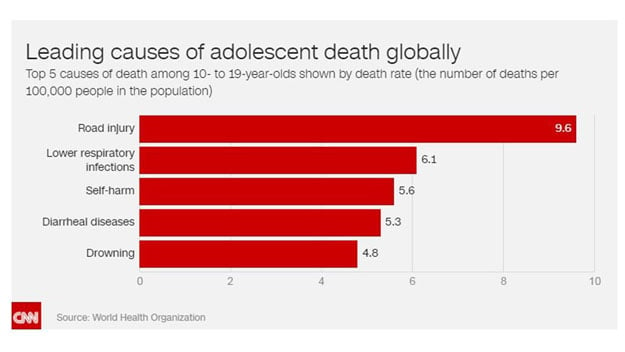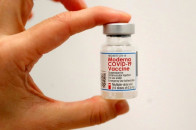Over 3,000 teenagers die worldwide every day
Researchers say the majority of these deaths are from preventable causes

PHOTO: APP
The leading cause of death among 10- to 19-year-olds globally was road injury, followed by lower respiratory infections, maternal conditions, self-harm, drowning, interpersonal violence, diarrheal disease and self-harm.

Researchers say the majority of these deaths are from preventable causes, with access to good health services, education, and social support these deaths could be prevented to some extent.
However, in many cases, teens who suffer from mental health disorders, substance use, or poor nutrition cannot get these critical prevention and care services – either because the services do not exist where they live or because they do not know about them.
Assistant Director-General WHO Dr Flavia Bustreo said, "Adolescents have been entirely absent from national health plans for decades."
Relatively small investments focused on adolescents now will not only result in healthy and empowered adults who thrive and contribute positively to their communities, but it will also result in healthier future generations, yielding enormous returns, she added.
The WHO report also mentions the way to improve adolescent’s health and details about how to start programmes on a small level in one community and then scale up to a national level.
‘0.1 million cases of self-harm surface every year’
"These programmes can actually help adolescents gain knowledge about laws mandating seat-belts and helmets, reducing access to and misuse of firearms, reducing indoor air pollution through cleaner cooking fuels, and increasing access to safe water, sanitation, and hygiene," it added.
"Improving the way health systems serve adolescents is just one part of improving their health," says Dr Anthony Costello, Director, Maternal, Newborn, Child and Adolescent Health, WHO. "Parents, families, and communities are extremely important, as they have the greatest potential to positively influence adolescent behaviour and health."



















COMMENTS
Comments are moderated and generally will be posted if they are on-topic and not abusive.
For more information, please see our Comments FAQ